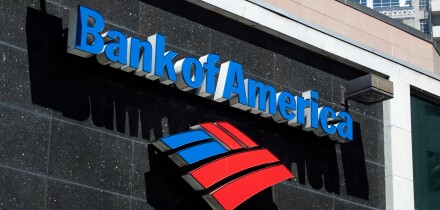Solar ABS volumes have grown impressively since the inception of the asset class around 2013 and Texas-based residential solar firm Sunnova has been a key part of the expansion.
In its latest new issue, priced on August 18 off its Helios platform for solar loan deals, Sunnova raised $243m. Although it has issued 17 public ABS transactions, including loan and lease and PPA-backed deals, since its debut in 2017, the company continues to attract first-time buyers to new issues — and to see existing investors up their orders.
In interview with GlobalCapital, Sunnova's executive vice-president and CFO Robert Lane talks resilience in the asset class, sector prepayment rates and they do and don't affect his company, and the dealing with interest rate dynamics.
GlobalCapital: Solar is a relatively new sector within ABS. Do you think investors are convinced of its resilience?
Robert Lane, executive VP and CFO, Sunnova: Even though solar securitizations have been around now for over a decade, I think there still remains some thought process that the sector has not been through a large economic downturn.
[But] frankly, the industry has been, and continues to go through, a lot of less than pleasant macroeconomic environments and yet still performs very well. Whereas I would say if you look at some of the other asset classes, they're performing as you would expect them to perform within a recession, with increased delinquencies and defaults.
Given significant volatility in capital markets, earlier in the year some issuers stopped including triple-B or double-B rated bonds in their deals. Do you think there is more demand for those bonds now?
I think that the disconnect into the double Bs has been less encouraging for a number of issuers, but what we've seen is that the spreads on the triple-Bs have improved significantly from where they were at the end of last year and [the] majority of issuances of this year.
We have also focused on the BBB rather than BBB- credit attachment point, as it provides investors who need investment-grade securities some comfort relative to a downgrade risk to BB+. That being said, our performance has remained strong.
Fortunately, what I have not seen across the industry is downgrades within the solar space. And I think that really goes to show how tight initial credit detachment points are to begin with by the rating agencies, as well as the realization — borne out by consumers — that it is a necessary service that we are providing, and not a discretionary good.
You have been a consistent issuer since 2018. What are the advantages of being programmatic?
Being programmatic allows investors to see a broader swath of your portfolio, allows [them] to see how the portfolio performs over time, and allows them to know if what you're marketing to them performs as you would expect it to. It just gives them more confidence.
Ironic luxury
Investors have been concerned about prepayment rates declining in solar ABS. How have you been affected by this trend?
We have the ironic luxury of never having been as strong on prepayments as our peers. So, we have not had as big of a decline in our prepayments as our peers. We have focused much more on customer service and creating an environment with a very low default and delinquency [rate] within our loans. Specifically, we're the only [solar] provider in the ABS market that provides a service wrap on our loans.
So [we] have not had as much of a decrease in prepayments as our peers, who rely more on mortgage refinancing, which — together with the natural turnover of homeownership — has certainly slowed. That being said, we have done well on prepayments relative to where we had expected to do so this year.
If [there is] a proper window of interest rates and mortgage rates start to come in, we will certainly be working with our customers who want to refinance. And I would also say that most of what's being originated today has higher interest rates than what was originated a year and a half to two years ago.
What I mean by that is there were so many folks within our space who were originating zero coupon loans, 0.99% coupon loans, 1.99% coupon loans. In today's atmosphere, it doesn't really make any sense for a consumer to prepay that, and rates would have to come down significantly for any of those loans to be the kind of thing that the consumer might want to do a cash out refi on.
New loans that are being originated today should have much higher longer term prepayment rates.
In a rising rate environment, how are you able to deal with passing the rising costs to consumers, and time when you are coming to market?
Origination to installation to in-service cycle of solar can take as much as six months. A lot of companies [...] weren't able to weather that, and they were stuck with underwater loans.
We heard from dealers that some fintech providers cancelled loans or repriced loans during the construction cycle, which means either the dealer or the customer — or both — are going to be unhappy. At the same time, if I compare Sofr and Treasury swaps to where they were even a month or two ago, they have increased significantly from where the most recent round of solar securitizations priced, and it is difficult to reprice a loan sold just a month before in so short a time.
I think a lot of us are trying to make sure that we're priced competitively for today's environment and for the future environment. There are still some folks who are trying to buy market share, but I think that there's still — for most folks — general rational thinking. [They want to] make sure that [they] can create a product and a service that provides savings to a consumer, while still making sure that it's something that [they] can finance.







